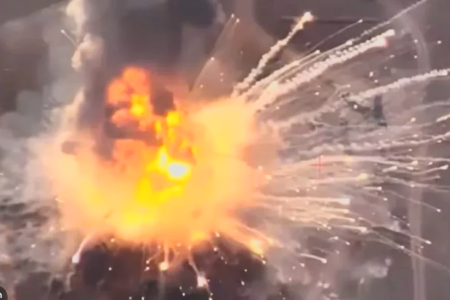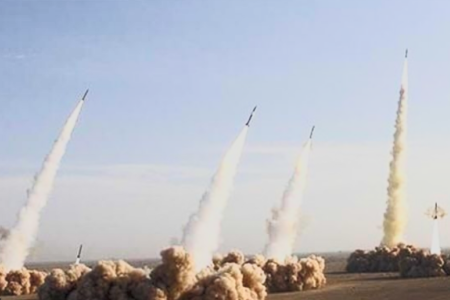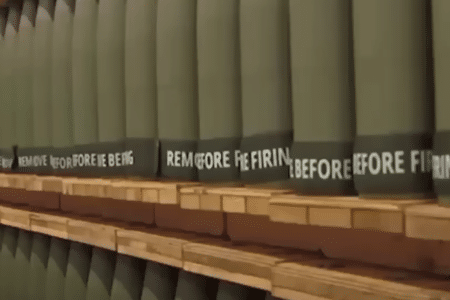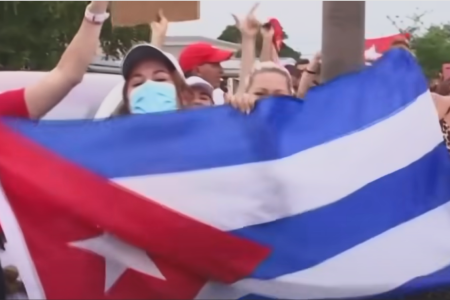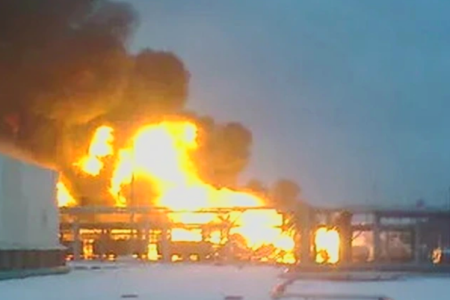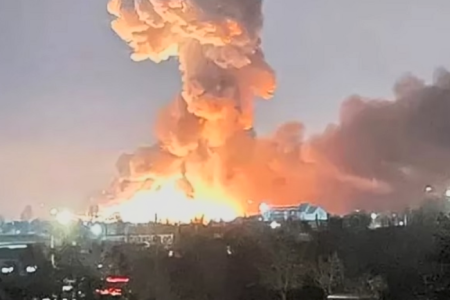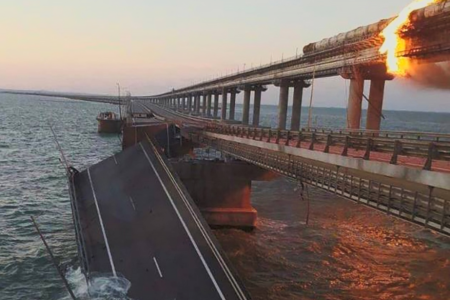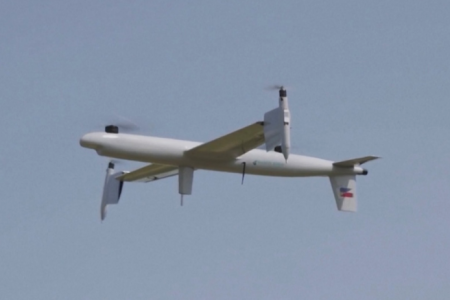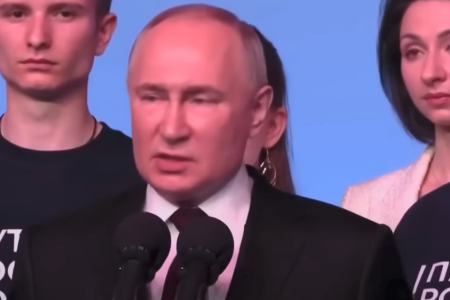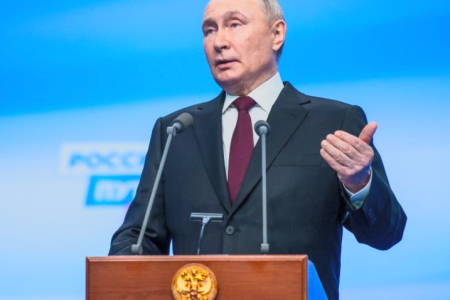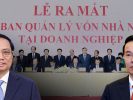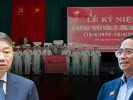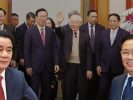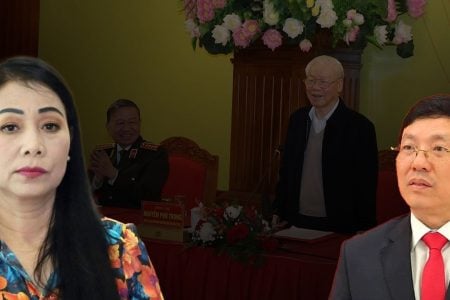What the US-Vietnam bilateral relationship will be and what can be expected when President Joe Biden took office?
At a discussion on Thursday roundtable on January 21, 2021, Assoc. Prof. Dr. Jonathan London, an American scholar from Leiden University in the Netherlands, commented to the BBC:
“I see this as a very good opportunity for Vietnam and the US to develop bilateral relations because what Vietnam needs to do now is very important, for example, the industrialization process in Vietnam is not deep, there is a lot of capital coming from China, the limitations of the Vietnamese economy, and the weak higher education in the country.”
“So I think there are very good and important opportunities for the two countries to develop more, especially in-depth, international integration, bilateral between the two countries, that’s one thing I am waiting for.”

From Hanoi, Assoc. Prof. Dr. Pham Quy Tho, an expert on public policy, stated:
“I see two ideas, the first is that anyway, the term of President Donald Trump has left America a lesson, Mr. Joe Biden said is to go back, but cannot go back as it was, whether for alliances with old allies, or other foreign policies requires change, that’s for sure,
“The second point in Vietnam, I have observed and I see that Vietnam must also change before the changes of the world in general in the context that Covid-19 changes the world order and America is also changing, then Vietnam must change.
“And Vietnam, according to my observation, is also changing seemingly positive, on one side, in international economic integration as well as diplomacy, but there are also difficult things that need to be discussed.”
Human rights and trade, which one gets more attention?
From Leeds, UK, freelance journalist Song Chi, former television director commented:
“I think that no matter who becomes the US President, belongs to the Democratic Party or the Republican party, the relationship between Vietnam and the US has not changed much.”
“Because clearly Vietnam still needs the United States in dealing with China’s growing aggression, and vice versa, the US will still need Vietnam as one of the countries that can keep China from becoming hegemon.
“So I think who becomes the US President, that relationship will not change, but it is certain that the Biden government will talk more about the human rights record and thus Hanoi will not be able to continue to suppress dissident voices like before, I think.”

On January 20, on the day of President Biden’s inauguration, a number of other commentators and observers from Vietnam raised their views on the Vietnam-US bilateral relationship in the new context in which the US moved to the new page about politics.
From Hoi An, economist Bui Kien Thanh told the BBC:
“With a change in leadership, first and foremost, I think there will be a change in the economic, trade, security, military, and defense policies of the US over its traditional allies as well as its competitors.
“As for Vietnam alone, it is likely that the US will return to the ‘Comprehensive and Progressive Agreement for Trans-Pacific Partnership,’ but in general US policy towards Vietnam still follows the Road Map which was made from many generations of US government.
The direction is that the US will support Vietnam to move towards deeper integration with the market economy, step by step building the ‘rule of law,’ developing freedom, democracy, human rights, and civil society.
To realize the above objectives, I think the US will step by step build a ‘strategic, comprehensive’ relationship with Vietnam.
However, the level of cooperation is mainly due to the Vietnamese side’s awareness and facilitation, in the process of reforming, renewing the thinking, renewing the collective leadership, eradicating corruption … because the American law prohibits the US government as well as American economic groups from participating in activities defined by US law as ‘corruption.’
Do security and defense cooperation continue to be promoted?

From the Vietnam Academy of Social Sciences, Dr. Mai Thanh Son told the BBC:
“Since the US and Vietnam normalized relations (July 1995) up to now, I find that regardless of the party’s representative holding the presidency in the US, Vietnam has emphasized the aspect of bilateral cooperation in economics, commercial, scientific-technical, and education and training.”
“In the past decade or so, in the field of security, military and defense, there have been certain improvements in relations between the two countries. I believe, when Mr. Joe Biden came to power, relations that will also be maintained and promoted.”
“Because, after all, bilateral ties development is beneficial for both sides. However, I do not expect the promotion or support of the development of democracy, freedom, human rights, and civil society, and the institutional barriers in Vietnam may be a solid wall that the US cannot easily overcome.”
Also from Hanoi on the same day, Dr. Ha Hoang Hop, a guest senior researcher at the Institute of Southeast Asian Studies (Iseas – Yusof Ishak of Singapore), stated to the BBC:
“In my opinion, the US and Vietnam will continue to promote bilateral trade-economic relations, Vietnam will increase imports of US goods, improve exchange rate policies and improve trade quality.
I think the US should return to the TPP soon, as that will broaden the bilateral trade opportunities for both the US and Vietnam.
“Regarding the security of the South China Sea, the Biden administration, in my opinion, will still keep the policy that the Trump administration declared on July 13, 2020, at least in terms of formality. Vietnam, besides, should promote the issue of security and safety in the Mekong region.”
“Finally, on human rights, I think it is possible that the Biden administration will further promote human rights activities related to Vietnam, especially in terms of freedom of expression, protest, labor rights, rights are associated with judicial practice and the rule of law and these are some of the main highlights I see at this point,” commented Dr. Ha Hoang Hop.
Commenting on the possibility of the new administration’s engagement with Vietnam, Professor Thayer said that the Biden administration would continue to pursue relations with Vietnam in the framework of a joint statement in 2013 on a full partnership approved under President Obama, at that time Mr. Biden was vice president. “The Trump administration has agreed to expand the comprehensive partnership and the Biden administration will follow this trend,” said Professor Thayer.
Open punishment
Along with the growing parallel of interests between Hanoi and Washington, the relationship between the two countries is also increasingly warm, especially since President Obama lifted the ban on selling lethal weapons to Vietnam during his visit to Hanoi in 2016.
But the two former enemies have recently been entangled in trade disputes, arguably stemming from the Trump administration’s attempt to reduce the growing trade deficit between the US and Vietnam.
The trade deficit with Vietnam with the US increased significantly and rapidly under the Trump administration and the US Treasury Department considered Vietnam as a “currency manipulator,” increasing the prospect of US taxation on Vietnamese goods.
The US trade deficit with Vietnam rose to $63 billion last year, from $47 billion a year earlier.
Professor Thayer said that one of the obstacles that Vietnamese leaders must overcome is the legacy of President Trump about the risk of tax and monetary manipulation sanctions.
Just days before President Trump’s resignation, the US Trade Representative (USTR) under his administration concluded the monetary manipulation investigation against Vietnam but did not suggest any action to apply like the previous concerns.
However, the agency said it will continue to assess existing options in response to the moves and policies it deems “unfair” by Vietnam “causing damage to American workers and businesses.”
“The Trump administration, specifically the US Trade Representative, has concluded that Vietnam has manipulated its currency but has not taken any specific sanctions, I think this is a wise act,” said Dr. Le Hong Hiep of the ISEAS-Yusof Ishak Institute for Southeast Asian Studies in Singapore.
“If the US takes measures to punish Vietnam immediately, it will damage bilateral relations and this is not beneficial in the context that the US is looking to increase cooperation with Vietnam for special strategic goals in dealing with China and controlling its increase in influence in the region, including the South China Sea.”
Thoibao.de (Translated)




